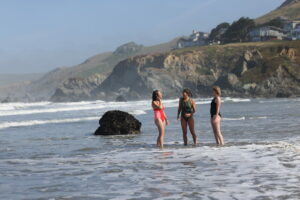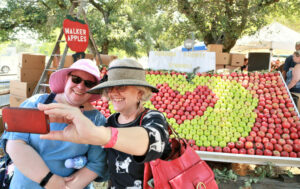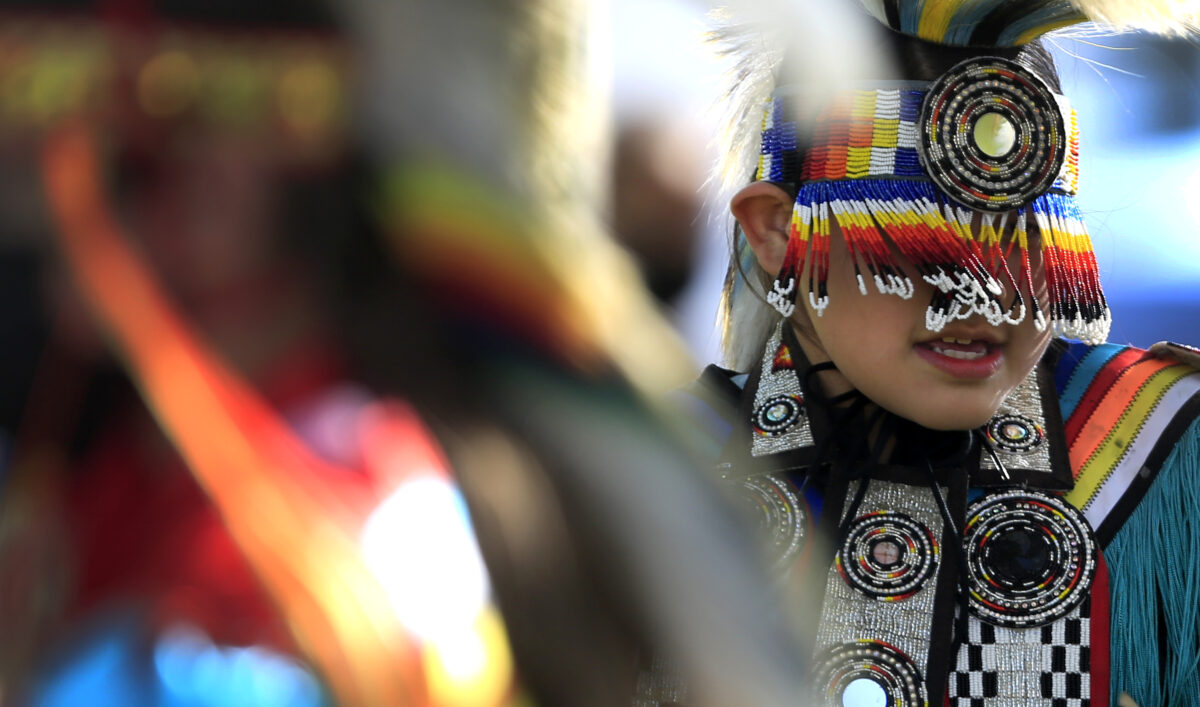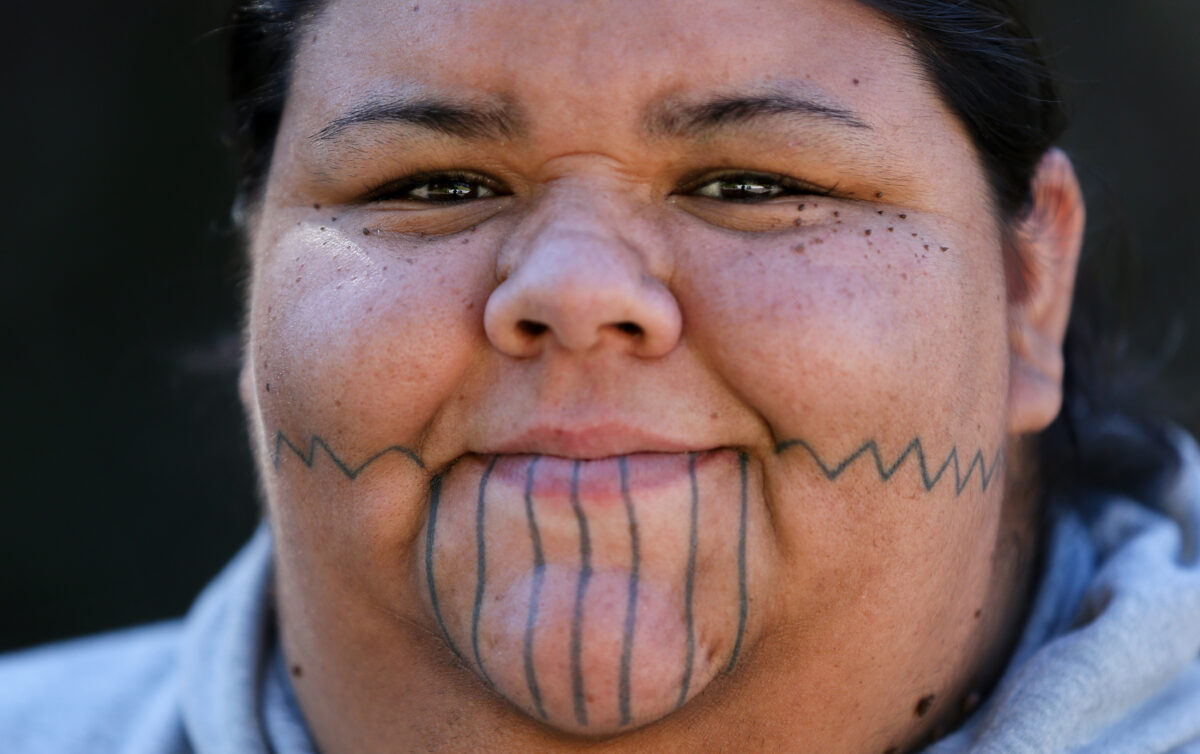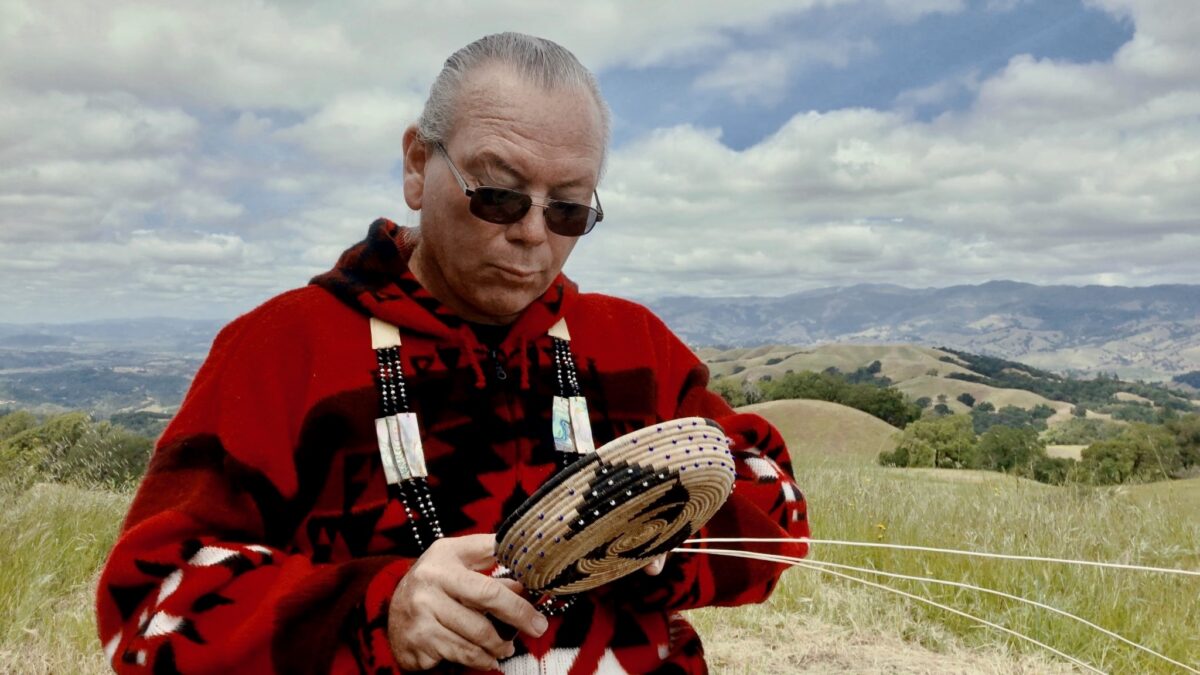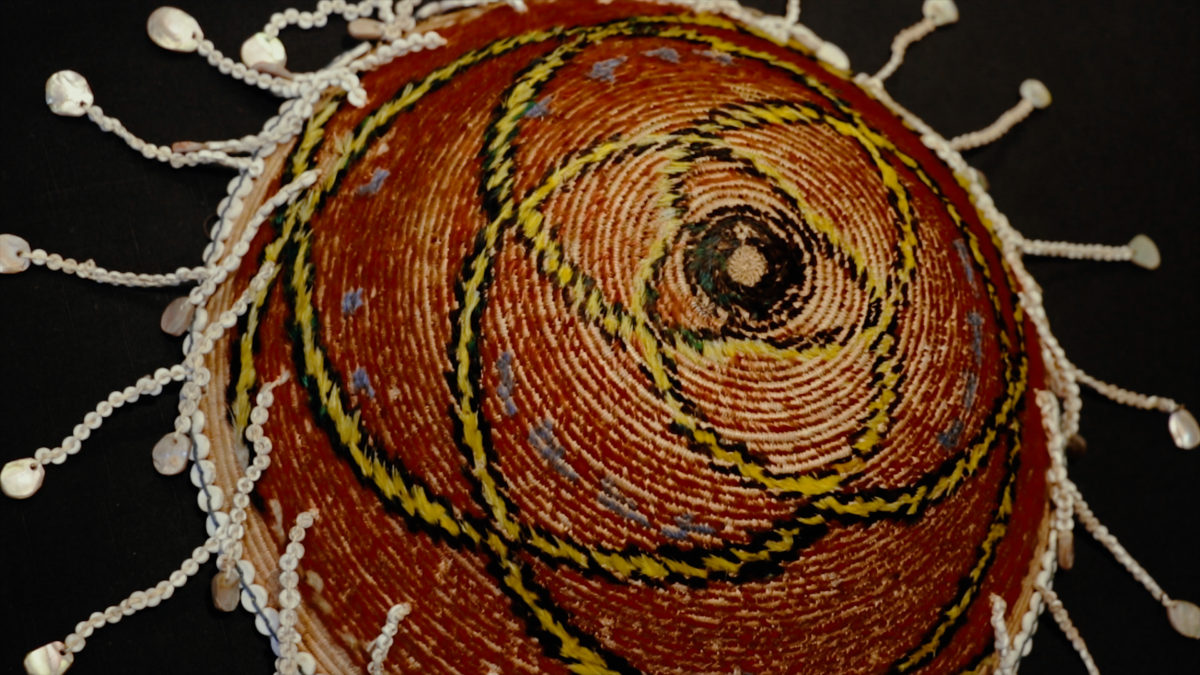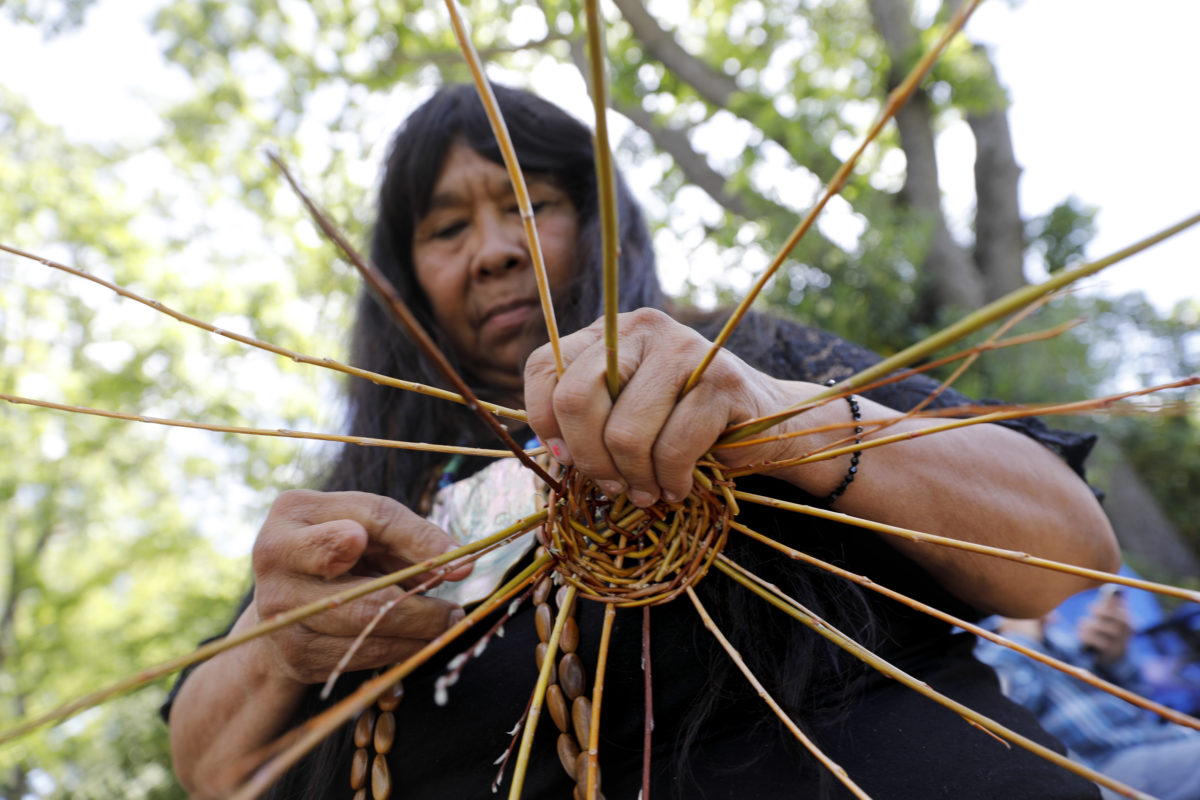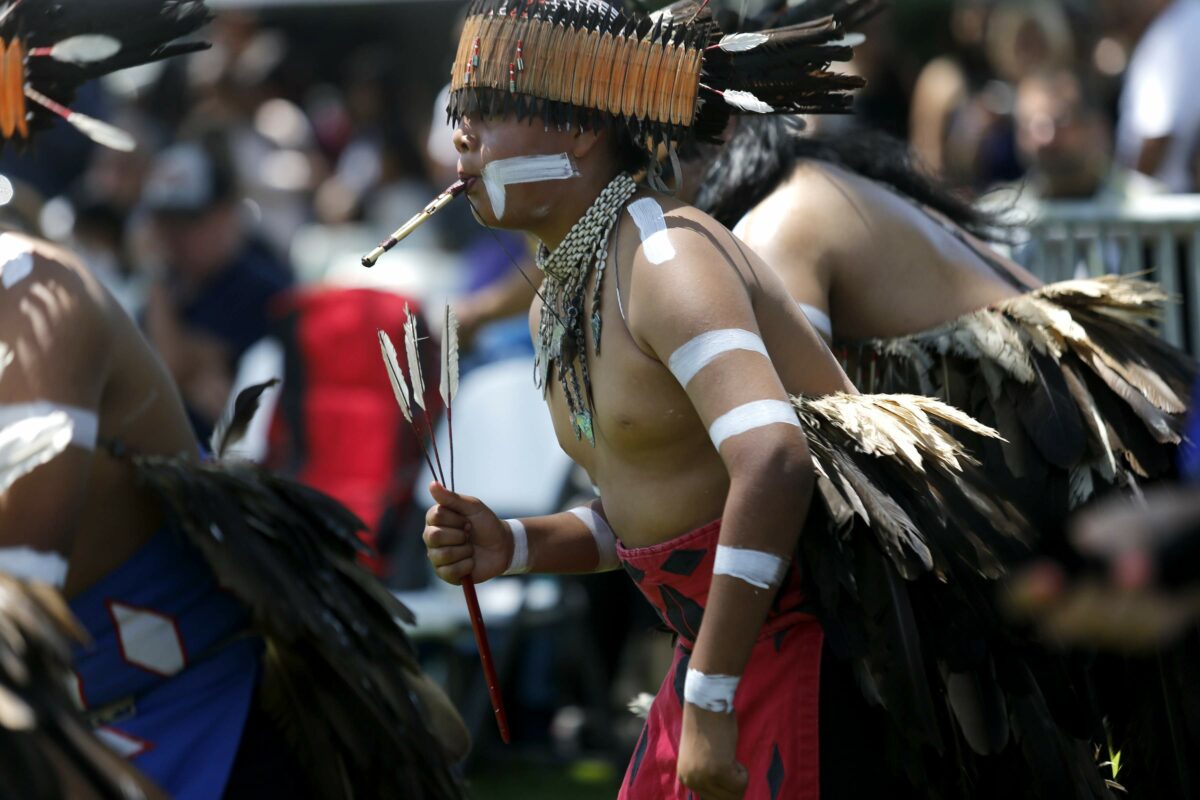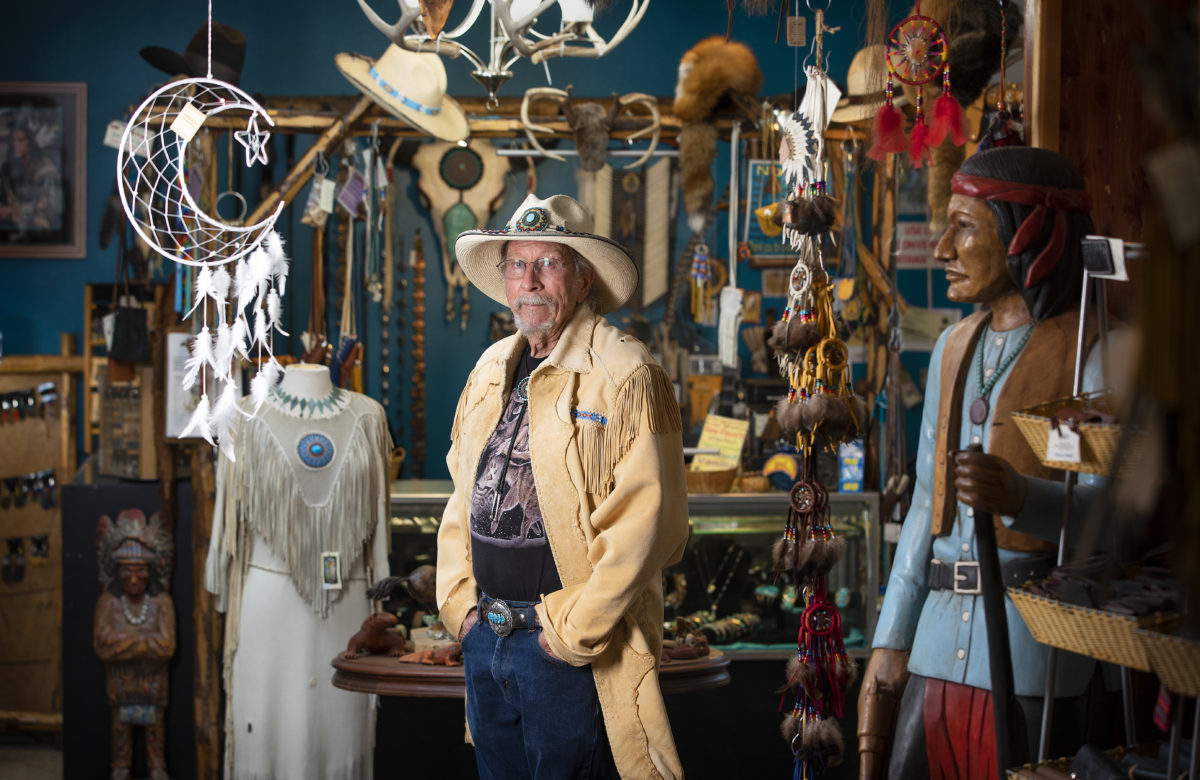Long before European settlers arrived in North America over five hundred years ago, Indigenous peoples lived all across the continent.
European colonization had devastating effects on Native populations, who were killed and forced from their ancestral lands. After the United States was founded, massacres, forced migration and discriminatory policies toward Native populations continued and then intensified in the 19th century, including The Trail of Tears, a series of forced displacements of approximately 100,000 American Indians.
These traumatic experiences have had a lasting impact on Native Americans, who continue to be disproportionately affected by high rates of poverty, unemployment and health disparities, as well as racism and discrimination.
But the Native American story is not just one of loss. It is a story of persistence and courage. It is a story of the preservation of rich traditions and cultures. It is a story of land stewardship and deep knowledge of the natural environment. It is a story of great achievements and profound contributions to this country.
Celebrating Native American heritage
In the early 1900s, anthropologist and historian Dr. Arthur Caswell Parker, of the Seneca tribe, proposed a day be dedicated to “First Americans.” The president of the Congress of the American Indian Association, Rev. Sherman Coolidge, issued a proclamation on Sept. 28, 1915, that declared the second Saturday of May as American Indian Day and contained the first formal appeal for recognition of Native Americans as citizens.
New York was the first state to adopt American Indian Day in 1916, and other states followed suit enacting days to honor Native Americans. But it wasn’t until 1990 that President George H. W. Bush approved a joint resolution designating November as “National American Indian Heritage Month,” now more commonly referred to as Native American Heritage Month.
The month is “a time to celebrate rich and diverse cultures, traditions, and histories and to acknowledge the important contributions of Native people,” according to the National Congress of American Indians (NCAI).
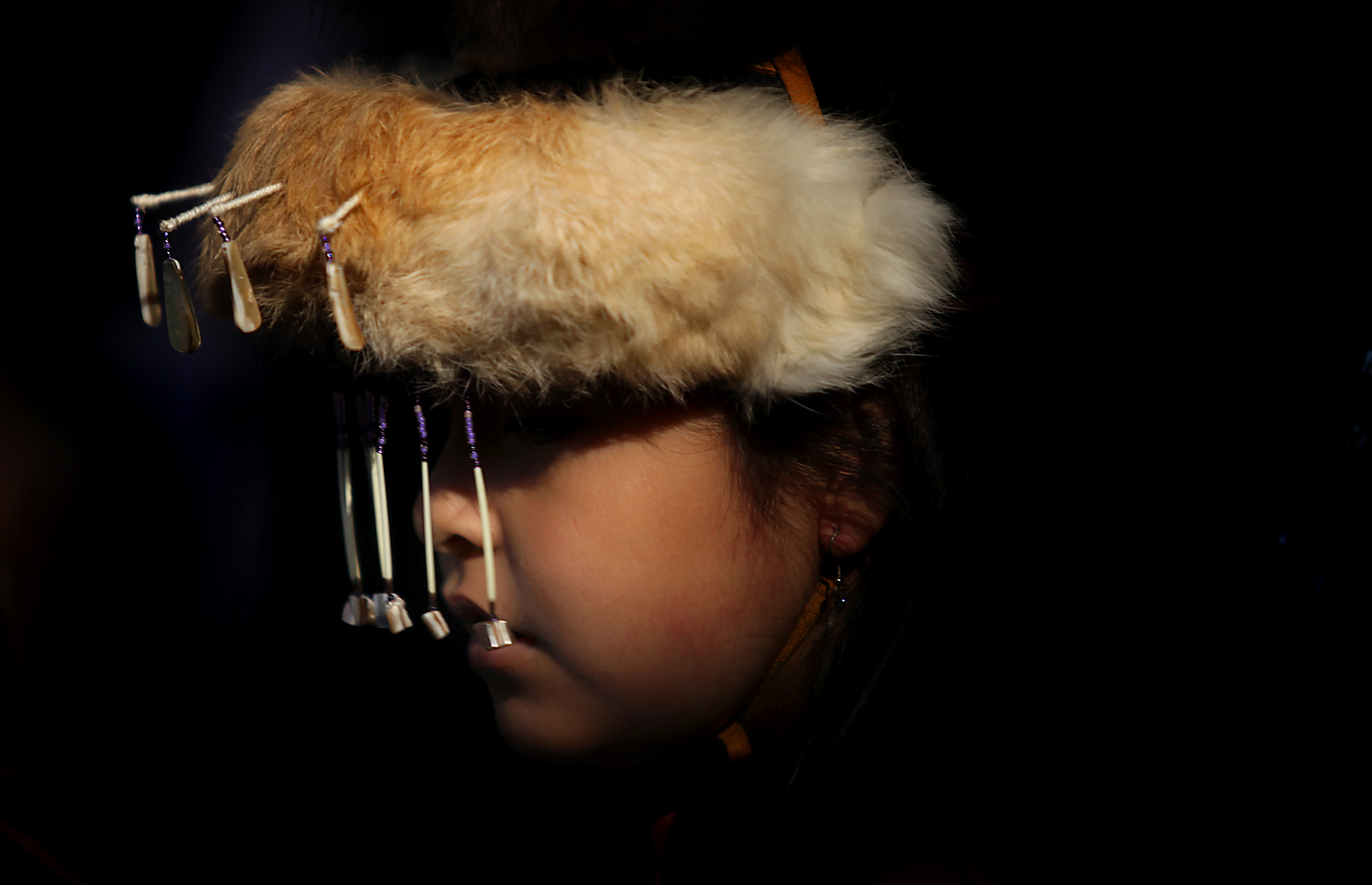
One way to celebrate Native American Heritage Month is to learn more about the Native American tribes and traditions in the area where you live.
The sprawling lands of Sonoma County encompass the territories of several Native communities, including the Miwok, Wappo, Pomo, Wintun and Patwin tribes. The rich heritage of Indigenous peoples in the county can be seen everywhere, from the pristine woodlands and waterways to the traditional artwork and cultural sites.
The Coast Miwok tribe covered a large area, from Sonoma to Bodega Bay, including the entirety of Petaluma, which the Miwok collectively called Peta Lumaa. The Kashia Pomo territory also covered parts of Bodega, along with other areas of the coast, such as Fort Ross and Stewart’s Point. In the northern end of the county, in Healdsburg and Santa Rosa, lived the Central Wappo, whose ancestral homelands also included the idyllic Pepperwood Preserve.
The Southern Pomo territory encompassed what’s now the Highway 101 corridor, from Cotati and Rohnert Park, throughout Santa Rosa and Sebastopol, and into Healdsburg and Cloverdale. Traveling further north into Geyserville and across Alexander Valley, the Western Wappo established two settlements that became the basis of Sonoma County’s name: Tsi’mitu-tso-noma, on the east bank of the Russian River, and Tekanan-tso-noma near the Geysers.
The descendants of these tribes are part of many active tribal groups in the county, including the Federated Indians of Graton Rancheria, the Dry Creek Rancheria Band of Pomo Indians, the Cloverdale Rancheria of Pomo Indians and the Kashia Band of Pomo Indians of the Stewarts Point Rancheria.
There are a handful of museums where you can learn more about the legacy and culture of local Native groups.
Santa Rosa Junior College has a Multicultural Museum with a vast collection of traditional Native American art, including baskets, pottery, sculptures, textiles and jewelry. The California Indian Museum and Cultural Center, also in Santa Rosa, offers various exhibits on the history and culture of the state’s Native tribes, as well as a museum store featuring food, clothing, jewelry and more from Native vendors. The center also provides Native youth programs and heads a Tobacco Prevention Project. In Novato, situated on the site of a former Coast Miwok settlement, there’s the Museum of the American Indian, which hosts events and exhibits highlighting Indigenous peoples all over the Americas.
Historic Native sites can be seen all around the county, including Tolay Lake Regional Park south of Petaluma, which was known as a spiritual healing center and is stewarded by the Federated Indians of Graton Rancheria. From Miwok Beach in Bodega Bay to Trione-Annadel State Park, Indigenous influences and preservation has graced the bountiful lands of Sonoma County.
To honor and celebrate the rich heritage of Native tribes in Sonoma County, visit art museums, Native American-owned businesses, and local events held throughout November.
Sonoma State University events
The Native American Heritage Month celebration at SSU kicked off this month with a virtual reading group discussion on “The Seed Keeper” by Diane Wilson, an award-winning author and Mdewakanton descendent, on Nov. 1 and a communal luncheon on Nov. 3 to “discuss the importance of celebrating Native American Heritage Month” over lunch. The rest of the month’s events include insightful presentations, discussions and a pizza night. (Note: Find links to Zoom events on SSU’s Native American Heritage Month event page.)
Eco-Kincentric Collaborations with the Center for Environmental Inquiry
Dr. Enrique Salmón, professor and head of the American Indian Studies Program at Cal State University, East Bay, will lead a virtual discussion on the ecological connection between humans and nature and how to enhance that bond. The talk will also illustrate some of the ways the Center for Environmental Inquiry is collaborating with the Federated Indians of Graton Rancheria at SSU’s Fairfield Osborn Preserve on Sonoma Mountain. The Zoom discussion will be held from 1-2:15 p.m. Tuesday, Nov. 8.
Native & Indigenous Pizza and a Show
The university’s HUB Cultural Center will host a pizza night with a showing of Reservation Dogs, a comedy show following the lives and exploits of four Indigenous teenagers in rural Oklahoma. The event will be held from 5-7 p.m. Thursday, Nov. 10, in the HUB Cultural Center, and all are welcome to attend.
History of the Federated Indians of Graton Rancheria
Matthew Johnson, a tribal citizen of the Federated Indians of Graton Rancheria and a cultural resources specialist for the tribe, will present the history and culture of the local Coast Miwok and Southern Pomo groups, from pre-colonization to present day. The presentation will be held over Zoom from 1-2 p.m. Thursday, Nov. 17.
Indigenous Experiences in the Realm of Academia
Trelasa Baratta, lead curriculum developer at nonprofit Redbud Resource Group, will discuss in a virtual lecture how Native American tribes in California survived genocide, forced assimilation and removal from their lands. The discussion will “explore modern Native identity, reconnection with traditional knowledge-holders through literature, and looking ahead at what the future may hold for Native communities.” The Zoom event will be held from 1-2:15 p.m. Tuesday, Nov. 29.
So You Want to Talk About Place: Decolonizing & Indigenizing “Race Talk”
Mary Churchill, professor of Native American Studies (as well as American Multicultural Studies, Women and Gender Studies, and Liberal Studies), will host a lecture to discuss the 2018 book “So You Want to Talk About Race” by bestselling author Ijeoma Oluo and share perspectives on decolonizing and indigenizing “race talks.” The lecture will be held from noon to 1 p.m. Wednesday, Nov. 30, at the Student Center Ballrooms.
Sonoma County Library events
The county’s libraries will be celebrating and paying tribute to Native people and their culture this month with virtual and in-person author talks along with a documentary panel discussion. The Sonoma County Library’s Native American & Indigenous Heritage Month event page includes information on events as well as a resource of books (for every age) “written by, for, and about Native American and Indigenous people.” Thanks to a resource sharing agreement, a Sonoma County Library Card grants you access to both the Lake County Native American Collection and the Mendocino First American Collection.
In-Person Author Talk with SSU’s Dr. James Mestaz
The Rohnert Park-Cotati Library will host an author discussion with Sonoma State history professor Dr. James Mestaz, who will discuss his first book “Strength from the Waters: A History of Indigenous Mobilization in Northwest Mexico.” The book examines the history of environmental and social connection to water access through the lens of the Mayo people of Sinaloa, Mexico. The in-person talk will be held from 6-7 p.m. Tuesday, Nov. 8, in the Rohnert Park-Cotati Library meeting room.
We Are Grateful: Otsaliheliga with children’s author Traci Sorell
In a virtual book reading and discussion, Traci Sorell, a Cherokee Nation citizen and award-winning children’s author, will share her book “We Are Grateful: Otsaliheliga,” about a Cherokee family celebrating community and expressing gratitude. Recommended for ages 4-8. This Zoom event will be held from 10:30-11:30 a.m. Wednesday, Nov. 9. Registration is required.
Inhabitants: Indigenous Perspectives on Restoring Our World virtual panel discussion
The library will host a virtual panel discussion on the documentary “Inhabitants: Indigenous Perspectives on Restoring Our World,” featuring two people involved in the making of the film. “Inhabitants” follows five Native American tribes across varying ecosystems as they restore their traditional land management practices to combat climate change and revive ancient relationships with the land. Panelists include producer and advisor Ben-Alex Dupris, of the Colville Confederated Tribes, and advisory board member Dr. Michael Kotutwa Johnson, of the Hopi Tribe. The virtual discussion will be held from 6-7 p.m. Tuesday, Nov. 15.
Virtual Author Talk with Nicole Eustace
Pulitzer Prize-winning historian Nicole Eustace will host a virtual conversation to discuss her book “Covered with Night: A Story of Murder and Indigenous Justice in Early America.” The virtual talk, which includes a Q&A with the author, will be held at 9 a.m. Wednesday, Dec 14. Register here.
At 9 a.m. on Wednesday, Dec 14. libraryc.org/sonomalibrary/21020/register
Santa Rosa Junior College events
Santa Rosa Junior College hosts a series of events during Native American Heritage Month, including one hosted by SRJC’s Intercultural Center on Nov. 15. More upcoming events an be found on the SRJC website: intercultural.santarosa.edu/native-american-history-month
Traditional Pomo Food Demonstration: Acorn Mush, Salmon, Seaweed & Tortillas
SRJC Native American Studies faculty member Lori Laiwa Thomas (Pomo, Coast Miwok, Huchnom) will lead a traditional Pomo food demonstration in the Santa Rosa Intercultural Center in Pioneer Hall, room 380. The event is free and open to all, following current SRJC Covid guidelines, and will be held from 2-4 p.m. Tuesday, Nov. 15.
1501 Mendocino Ave., Santa Rosa, 707-527-4741, intercultural.santarosa.edu
More events
Three Sisters Cooking & Interactive Performance
The Sonoma Community Center will host instructors Elise Gonzales and Alicia Retes as they teach a pair of family-friendly culinary and art classes honoring Native American traditions, from 11 a.m. to 1 p.m. on Saturday, Nov. 19.
The culinary class, from 11 a.m. to noon in the center’s Rotary Kitchen, will teach about “the three sisters,” a Native American agricultural tradition of growing and cooking corn, beans and squash together to create a colorful, nourishing dish. The art class, from 12:30-1 p.m. in room 110, will see Native American storyteller Alicia Retes perform her version of The Three Sisters using handcrafted husk characters and instruments in an interactive performance and sing-along. The event is meant for families and tickets are $10-$75.
Sonoma Community Center, 276 East Napa St., Sonoma, 707-938-4626, sonomacommunitycenter.org
Native-owned businesses
Graton Resort & Casino: Hotel, casino and restaurants, owned and operated by the Federated Indians of Graton Rancheria. 288 Golf Course Drive West, Rohnert Park, 707-588-7100, gratonresortcasino.com
River Rock Casino: Casino and eateries, owned and operated by the Dry Creek Rancheria Band of Pomo Indians. 3250 Highway 128, Geyserville, 1-877-883-7777, riverrockcasino.com
Bellacana Wines: Winery offering award-winning Cabernet Sauvignon and Sauvignon Blanc wines. 9071 Windsor Road, Windsor, 707-687-0956, bellacanavineyard.com
Fry Bread Shop: Eatery serving fry bread, Indian tacos and the original “Rez Dog,” owned by Derek Muro of the Kashia Band of Pomo Indians of Stewarts Point Rancheria. 521 W Ninth St., Santa Rosa, 707-694-7405, facebook.com/frybreadshop
NativeGirl40: Retail shop selling bags, wallets and prints, owned by Violet Wilder of the Kashia Band of Pomo Indians of Stewarts Point Rancheria. 1007B W. College Ave., Suite 246, Santa Rosa, 707-508-5797, facebook.com/nativegirl40bagsandpouches
Native Riders: Clothing store and gift shop selling handmade accessories, unique knives, leather booties, painted mugs, incense and more. 851 Gravenstein Hwy S., Sebastopol, 707-829-8544, facebook.com/people/Native-Riders/100063868039441
Lucid Luck: Online clothing store, by Cloverdale brothers Matthew and Michael Molina, selling T-shirts, hoodies and accessories. lucidluck.com
West Coast Cuts: Barber shop owned by Jerry Herrera. 46 W. College Ave., Santa Rosa, 707-843-5069, booksy.com/en-us/534294_west-coast-cuts_barber-shop_134731_santa-rosa
Revolutionary Mystic: Psychic medium and astrology reading services, plus candles, oils, crystals and tarot cards, owned by Mētztli Wolf. revolutionarymystic.com







